ADT 2011 Annual Report Download - page 127
Download and view the complete annual report
Please find page 127 of the 2011 ADT annual report below. You can navigate through the pages in the report by either clicking on the pages listed below, or by using the keyword search tool below to find specific information within the annual report.-
 1
1 -
 2
2 -
 3
3 -
 4
4 -
 5
5 -
 6
6 -
 7
7 -
 8
8 -
 9
9 -
 10
10 -
 11
11 -
 12
12 -
 13
13 -
 14
14 -
 15
15 -
 16
16 -
 17
17 -
 18
18 -
 19
19 -
 20
20 -
 21
21 -
 22
22 -
 23
23 -
 24
24 -
 25
25 -
 26
26 -
 27
27 -
 28
28 -
 29
29 -
 30
30 -
 31
31 -
 32
32 -
 33
33 -
 34
34 -
 35
35 -
 36
36 -
 37
37 -
 38
38 -
 39
39 -
 40
40 -
 41
41 -
 42
42 -
 43
43 -
 44
44 -
 45
45 -
 46
46 -
 47
47 -
 48
48 -
 49
49 -
 50
50 -
 51
51 -
 52
52 -
 53
53 -
 54
54 -
 55
55 -
 56
56 -
 57
57 -
 58
58 -
 59
59 -
 60
60 -
 61
61 -
 62
62 -
 63
63 -
 64
64 -
 65
65 -
 66
66 -
 67
67 -
 68
68 -
 69
69 -
 70
70 -
 71
71 -
 72
72 -
 73
73 -
 74
74 -
 75
75 -
 76
76 -
 77
77 -
 78
78 -
 79
79 -
 80
80 -
 81
81 -
 82
82 -
 83
83 -
 84
84 -
 85
85 -
 86
86 -
 87
87 -
 88
88 -
 89
89 -
 90
90 -
 91
91 -
 92
92 -
 93
93 -
 94
94 -
 95
95 -
 96
96 -
 97
97 -
 98
98 -
 99
99 -
 100
100 -
 101
101 -
 102
102 -
 103
103 -
 104
104 -
 105
105 -
 106
106 -
 107
107 -
 108
108 -
 109
109 -
 110
110 -
 111
111 -
 112
112 -
 113
113 -
 114
114 -
 115
115 -
 116
116 -
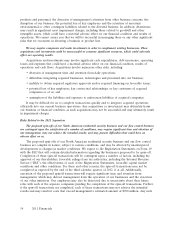 117
117 -
 118
118 -
 119
119 -
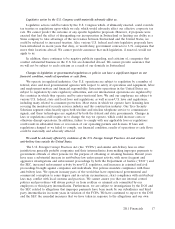 120
120 -
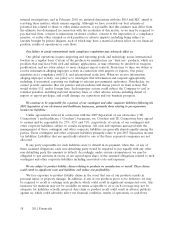 121
121 -
 122
122 -
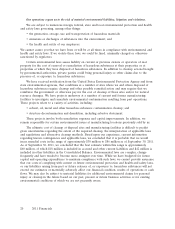 123
123 -
 124
124 -
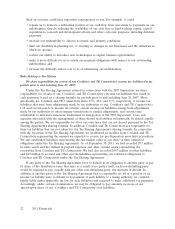 125
125 -
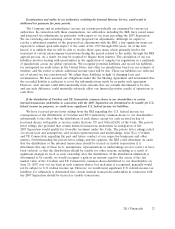 126
126 -
 127
127 -
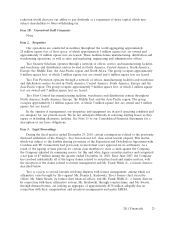 128
128 -
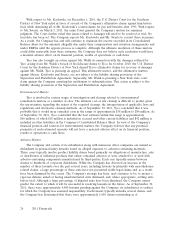 129
129 -
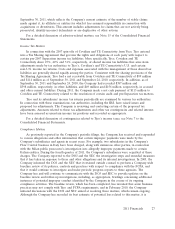 130
130 -
 131
131 -
 132
132 -
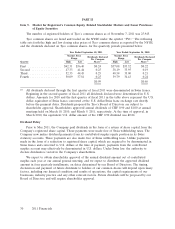 133
133 -
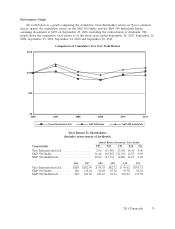 134
134 -
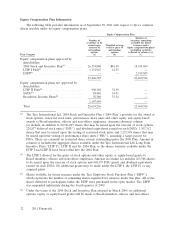 135
135 -
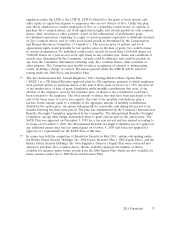 136
136 -
 137
137 -
 138
138 -
 139
139 -
 140
140 -
 141
141 -
 142
142 -
 143
143 -
 144
144 -
 145
145 -
 146
146 -
 147
147 -
 148
148 -
 149
149 -
 150
150 -
 151
151 -
 152
152 -
 153
153 -
 154
154 -
 155
155 -
 156
156 -
 157
157 -
 158
158 -
 159
159 -
 160
160 -
 161
161 -
 162
162 -
 163
163 -
 164
164 -
 165
165 -
 166
166 -
 167
167 -
 168
168 -
 169
169 -
 170
170 -
 171
171 -
 172
172 -
 173
173 -
 174
174 -
 175
175 -
 176
176 -
 177
177 -
 178
178 -
 179
179 -
 180
180 -
 181
181 -
 182
182 -
 183
183 -
 184
184 -
 185
185 -
 186
186 -
 187
187 -
 188
188 -
 189
189 -
 190
190 -
 191
191 -
 192
192 -
 193
193 -
 194
194 -
 195
195 -
 196
196 -
 197
197 -
 198
198 -
 199
199 -
 200
200 -
 201
201 -
 202
202 -
 203
203 -
 204
204 -
 205
205 -
 206
206 -
 207
207 -
 208
208 -
 209
209 -
 210
210 -
 211
211 -
 212
212 -
 213
213 -
 214
214 -
 215
215 -
 216
216 -
 217
217 -
 218
218 -
 219
219 -
 220
220 -
 221
221 -
 222
222 -
 223
223 -
 224
224 -
 225
225 -
 226
226 -
 227
227 -
 228
228 -
 229
229 -
 230
230 -
 231
231 -
 232
232 -
 233
233 -
 234
234 -
 235
235 -
 236
236 -
 237
237 -
 238
238 -
 239
239 -
 240
240 -
 241
241 -
 242
242 -
 243
243 -
 244
244 -
 245
245 -
 246
246 -
 247
247 -
 248
248 -
 249
249 -
 250
250 -
 251
251 -
 252
252 -
 253
253 -
 254
254 -
 255
255 -
 256
256 -
 257
257 -
 258
258 -
 259
259 -
 260
260 -
 261
261 -
 262
262 -
 263
263 -
 264
264 -
 265
265 -
 266
266 -
 267
267 -
 268
268 -
 269
269 -
 270
270 -
 271
271 -
 272
272 -
 273
273 -
 274
274 -
 275
275 -
 276
276 -
 277
277 -
 278
278 -
 279
279 -
 280
280 -
 281
281 -
 282
282 -
 283
283 -
 284
284 -
 285
285 -
 286
286 -
 287
287 -
 288
288 -
 289
289 -
 290
290 -
 291
291 -
 292
292 -
 293
293 -
 294
294 -
 295
295 -
 296
296 -
 297
297 -
 298
298 -
 299
299 -
 300
300 -
 301
301 -
 302
302 -
 303
303 -
 304
304 -
 305
305 -
 306
306 -
 307
307 -
 308
308 -
 309
309 -
 310
310 -
 311
311 -
 312
312 -
 313
313
 |
 |
Risks Relating to Our Jurisdiction of Incorporation in Switzerland
Swiss laws differ from the laws in effect in the United States and may afford less protection to holders of
Tyco’s securities.
Because of differences between Swiss law and U.S. state and federal laws and differences between
the governing documents of Swiss companies and those incorporated in the U.S., it may not be possible
to enforce in Switzerland, court judgments obtained in the United States against Tyco based on the civil
liability provisions of the federal or state securities laws of the United States. As a result, in a lawsuit
based on the civil liability provisions of the U.S. federal or state securities laws, U.S. investors may find
it difficult to:
• effect service within the United States upon Tyco or its directors and officers located outside the
United States;
• enforce judgments obtained against those persons in U.S. courts or in courts in jurisdictions
outside the United States; and
• enforce against those persons in Switzerland, whether in original actions or in actions for the
enforcement of judgments of U.S. courts, civil liabilities based solely upon the U.S. federal or
state securities laws.
Switzerland and the United States do not have a treaty providing for reciprocal recognition of and
enforcement of judgments in civil and commercial matters. The recognition and enforcement of a
judgment of the courts of the United States in Switzerland is governed by the principles set forth in the
Swiss Federal Act on Private International Law. This statute provides in principle that a judgment
rendered by a non-Swiss court may be enforced in Switzerland only if:
• the foreign court had jurisdiction pursuant to the Swiss Federal Act on Private International
Law;
• the judgment of such foreign court has become final and non-appealable;
• the judgment does not contravene Swiss public policy;
• the court procedures and the service of documents leading to the judgment were in accordance
with the due process of law; and
• no proceeding involving the same position and the same subject matter was first brought in
Switzerland, or adjudicated in Switzerland, or that it was earlier adjudicated in a third state and
this decision is recognizable in Switzerland.
As a result of our change of domicile from Bermuda to Switzerland and the increase in the par value of
our shares, we may have less flexibility with respect to certain aspects of capital management.
In connection with our change of domicile from Bermuda to Switzerland, we significantly increased
the par value of our shares. Currently the par value of our shares is CHF 6.70 (or approximately $7.44
based on the exchange rate in effect on November 7, 2011). Under Swiss law, we generally may not
issue registered shares for an amount below par value. As of November 7, 2011 the closing price of our
ordinary shares on the New York Stock Exchange (‘‘NYSE’’) was $46.47. In the event there is a need
to raise common equity capital at a time when the trading price of our registered shares is below our
par value, we would need to obtain approval of our shareholders to decrease the par value of our
registered shares. We cannot provide assurance that we would be able to obtain such shareholder
approval in a timely manner. Obtaining shareholder approval would require filing a preliminary proxy
statement with the SEC and convening a meeting of shareholders which would delay any capital raising
plans. If we were to receive shareholder approval to reduce the par value of our registered shares, the
24 2011 Financials
